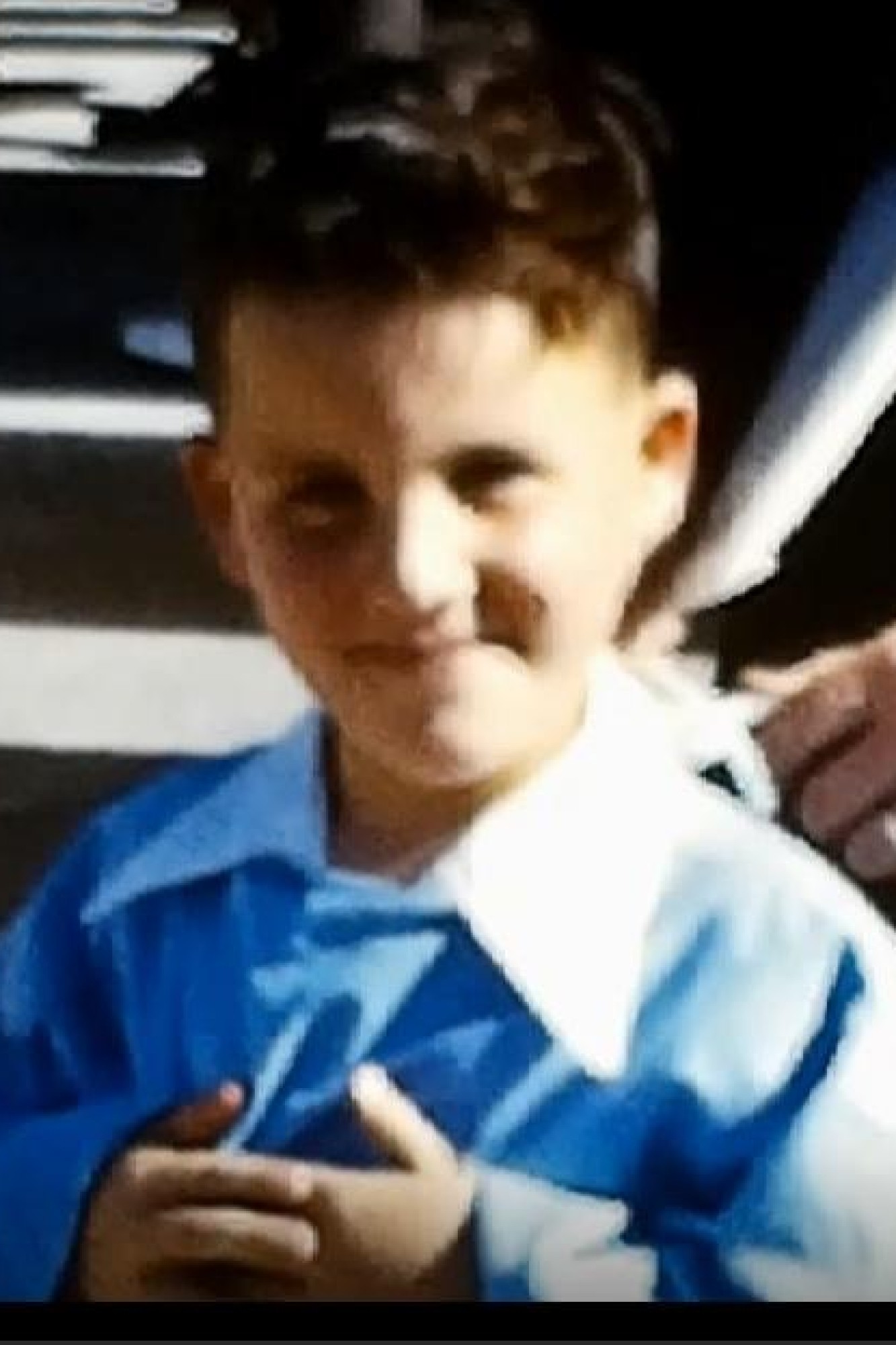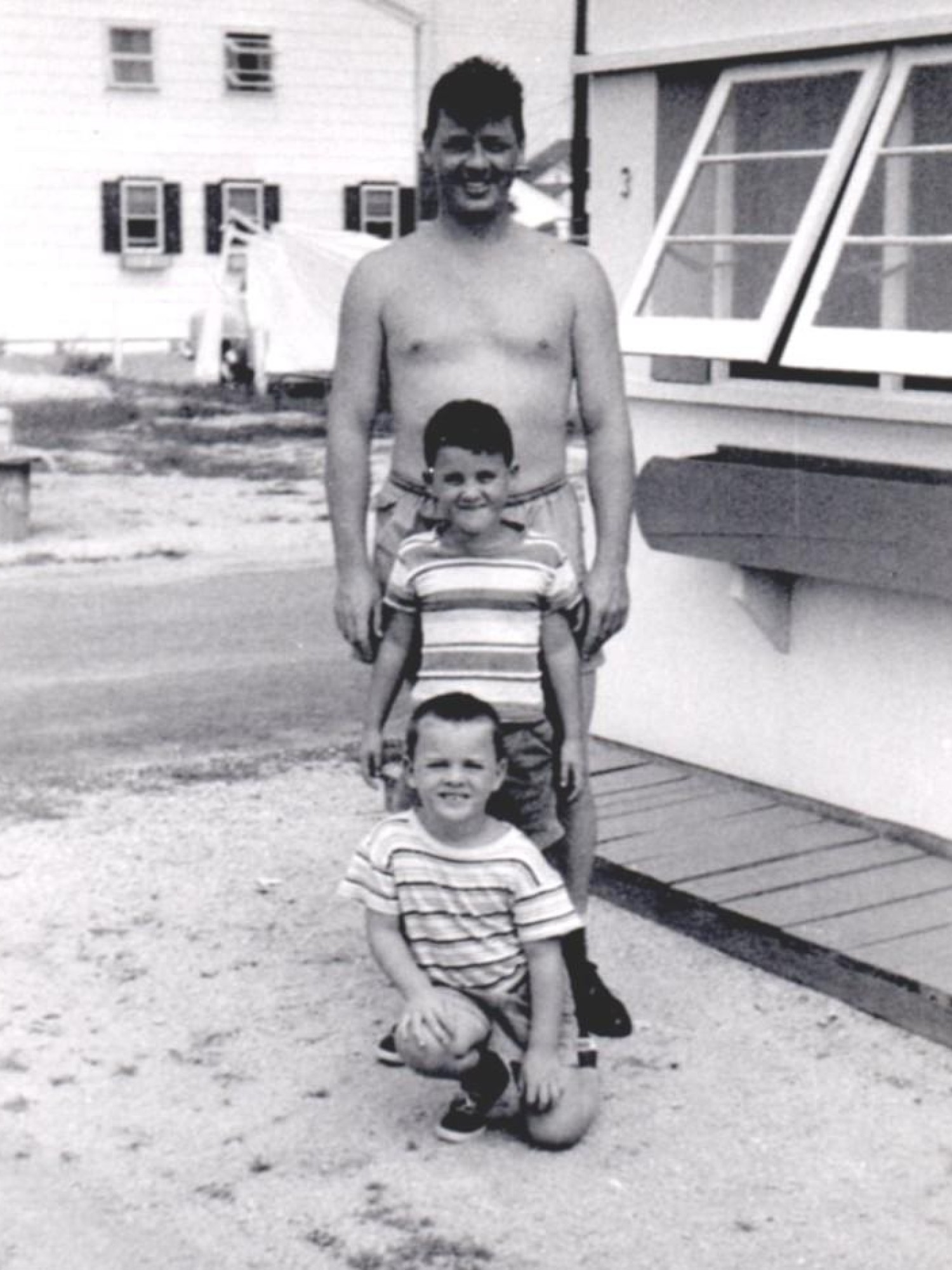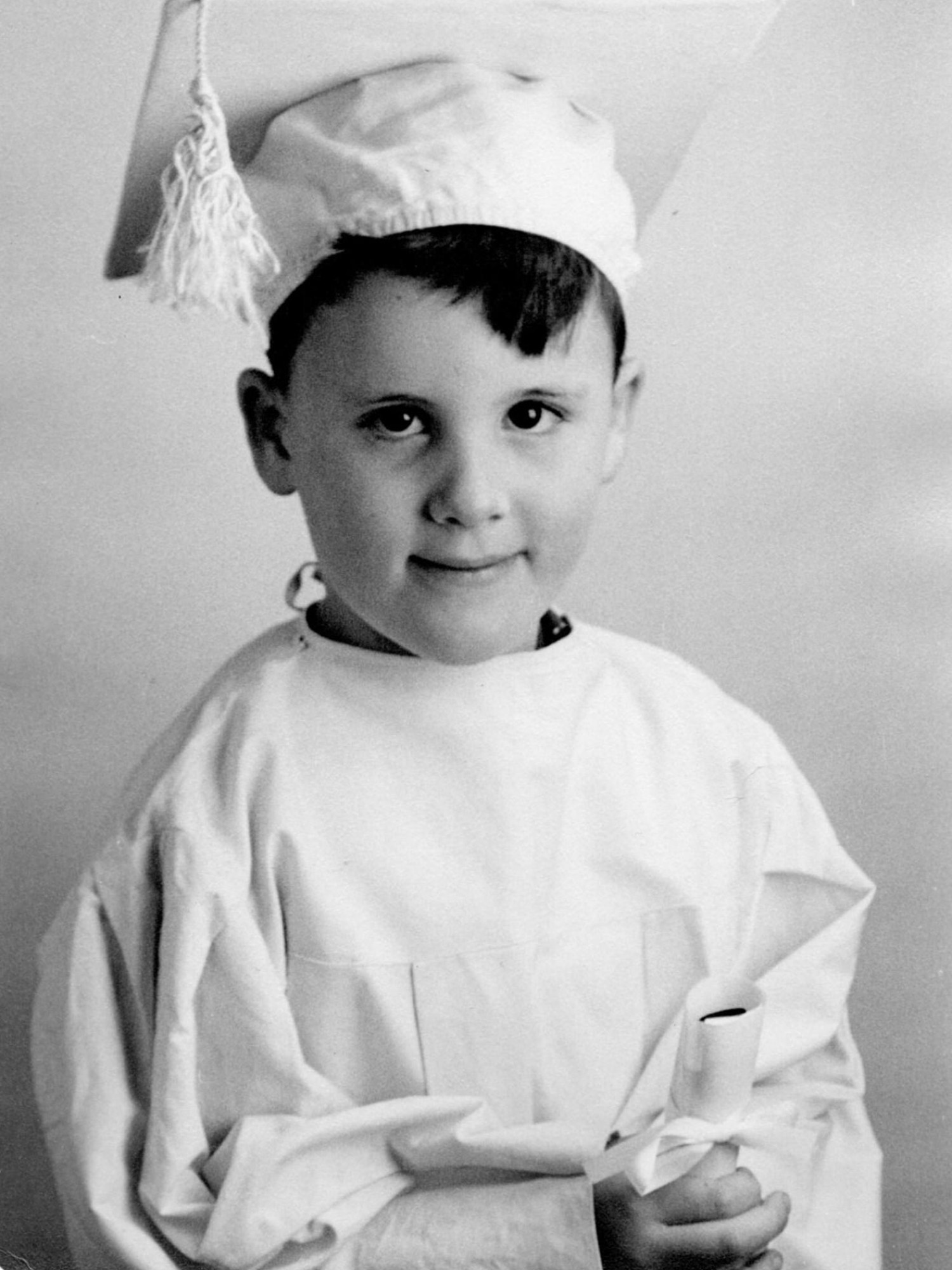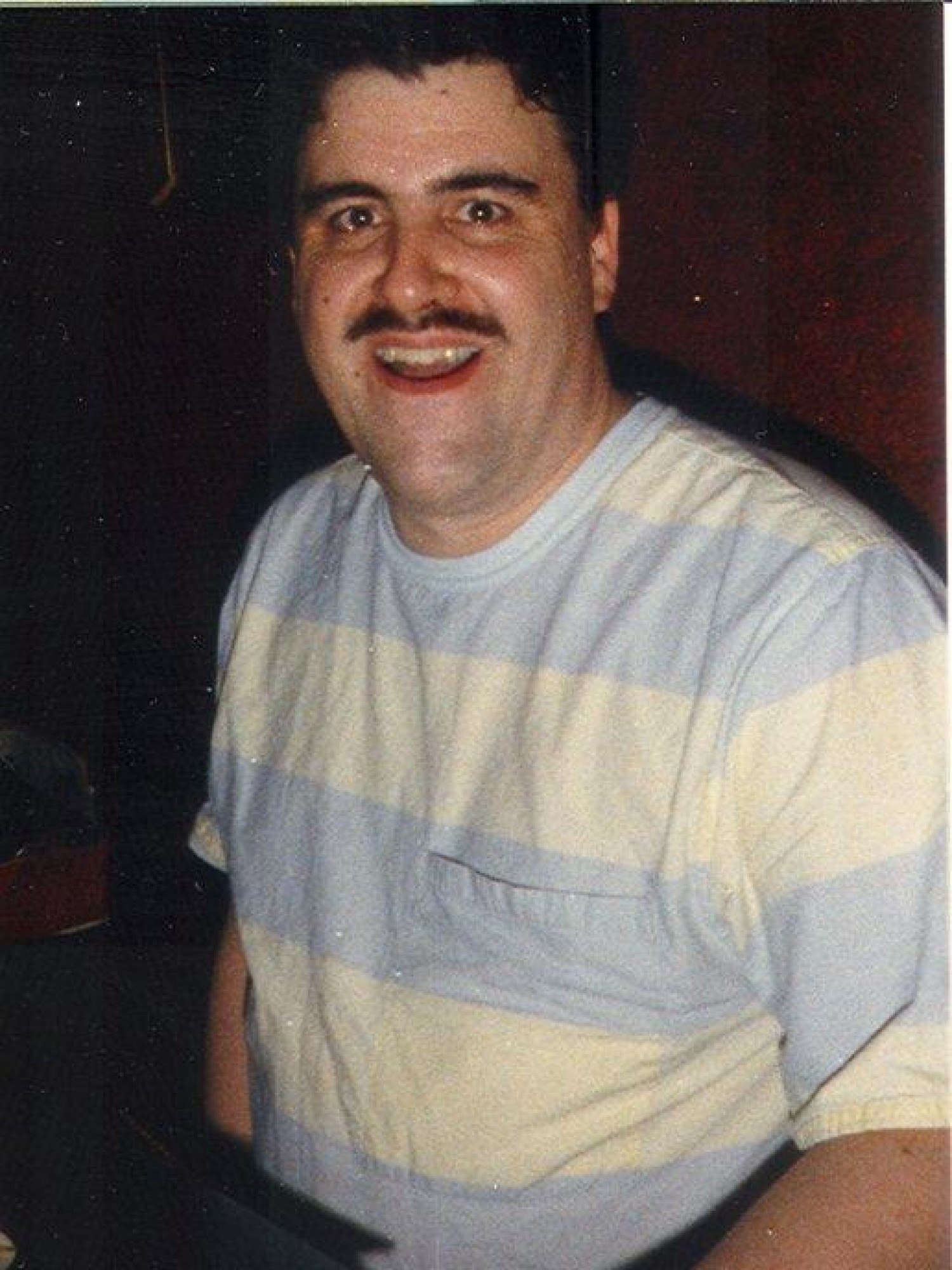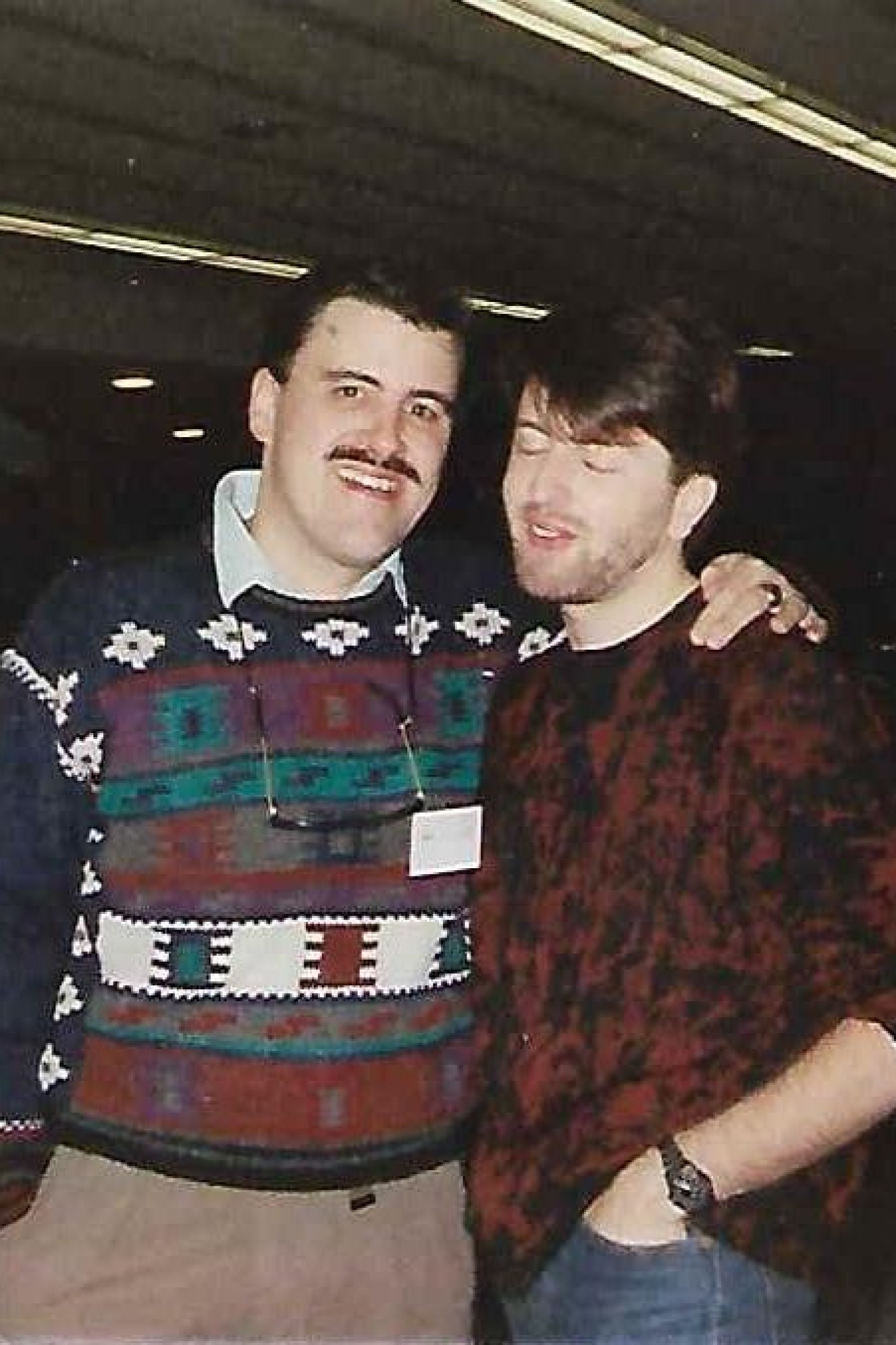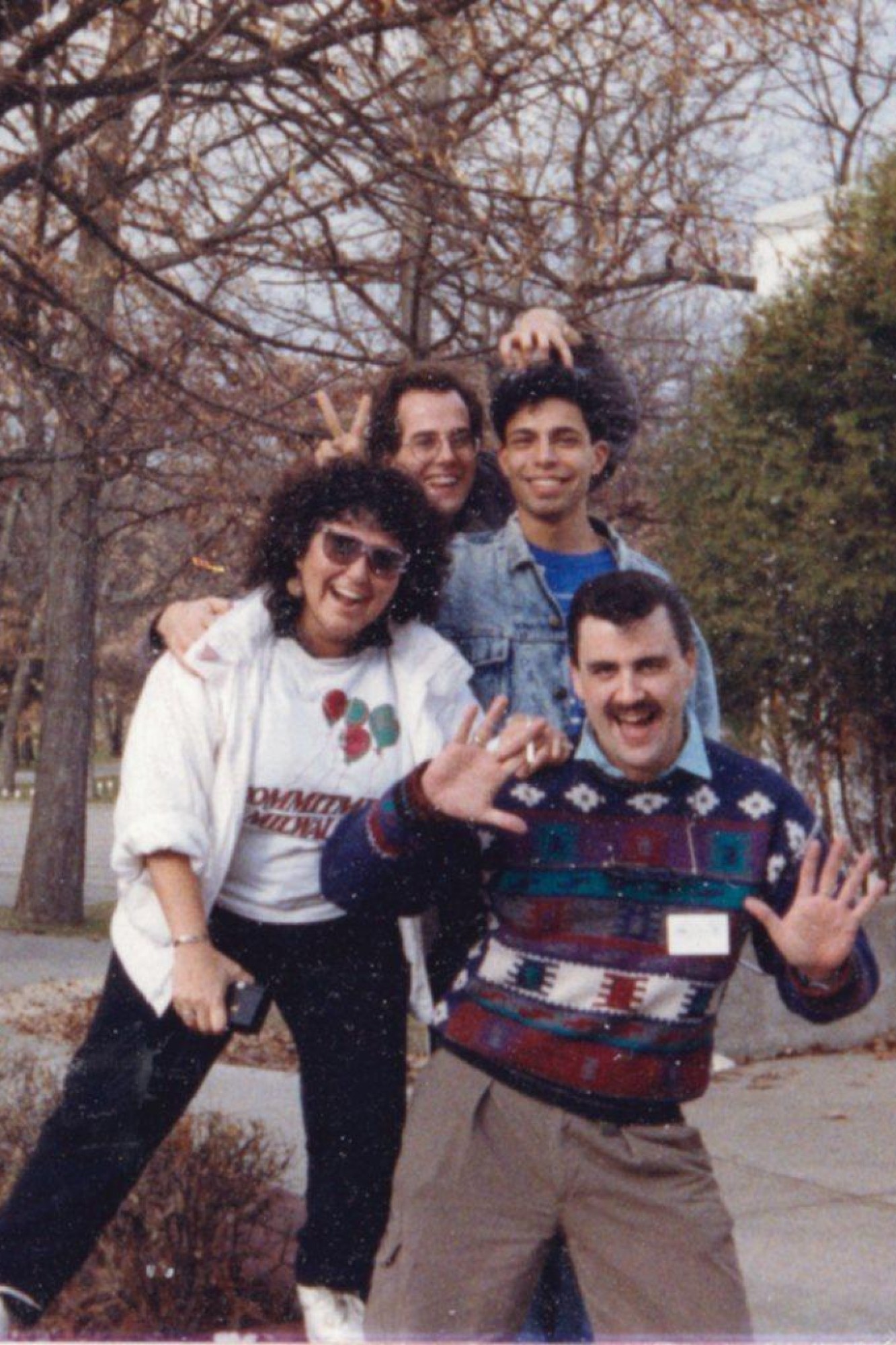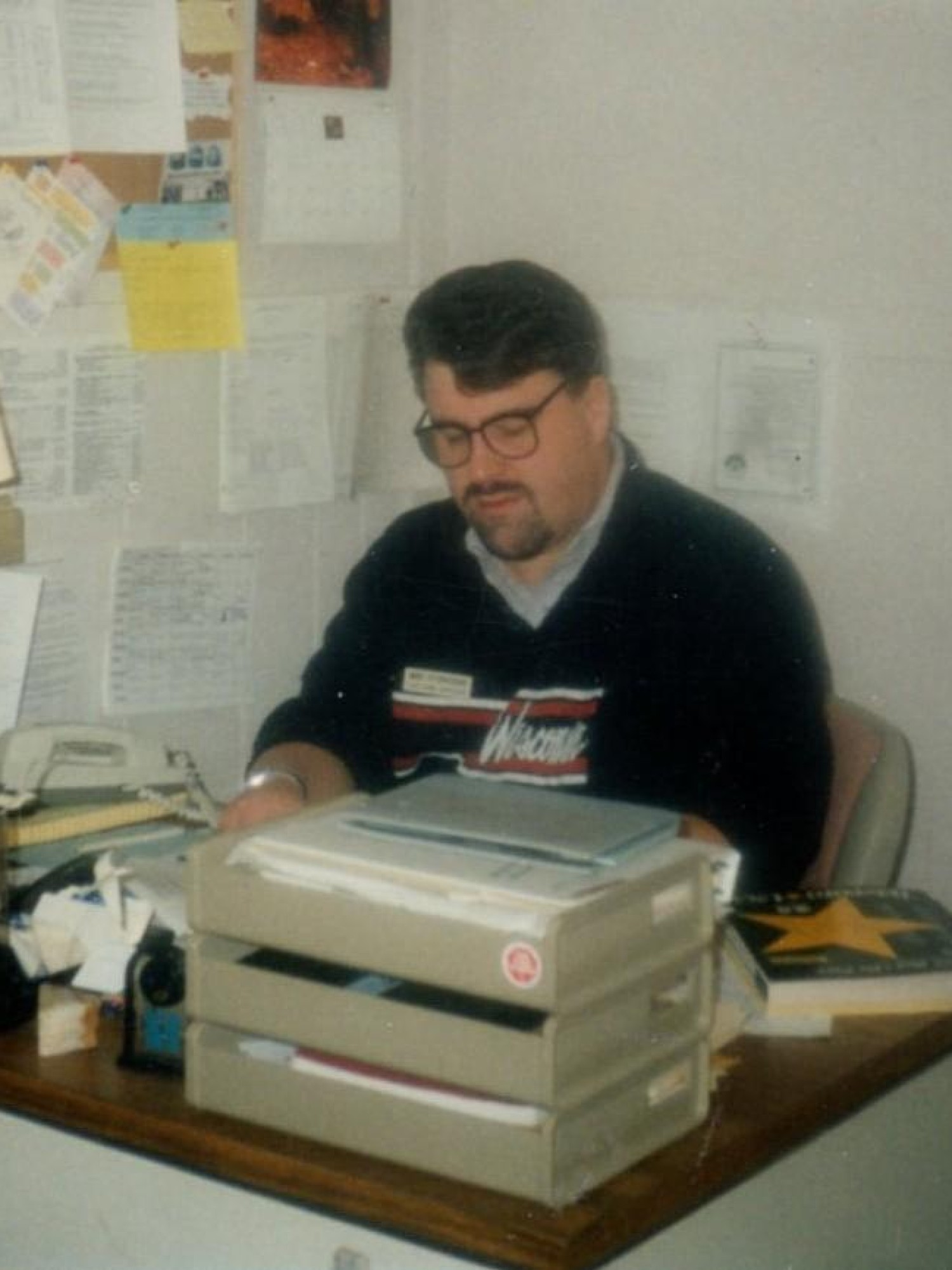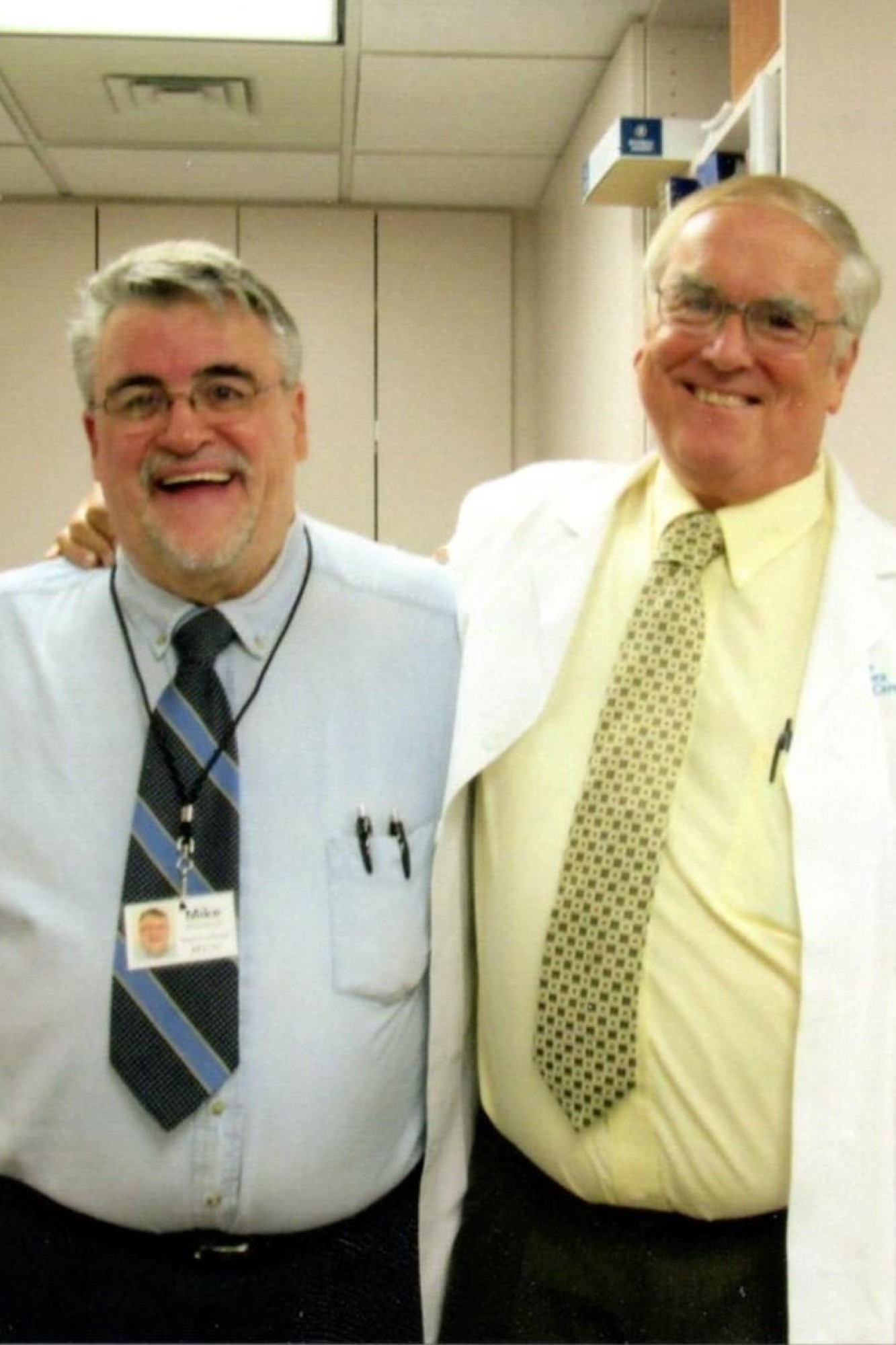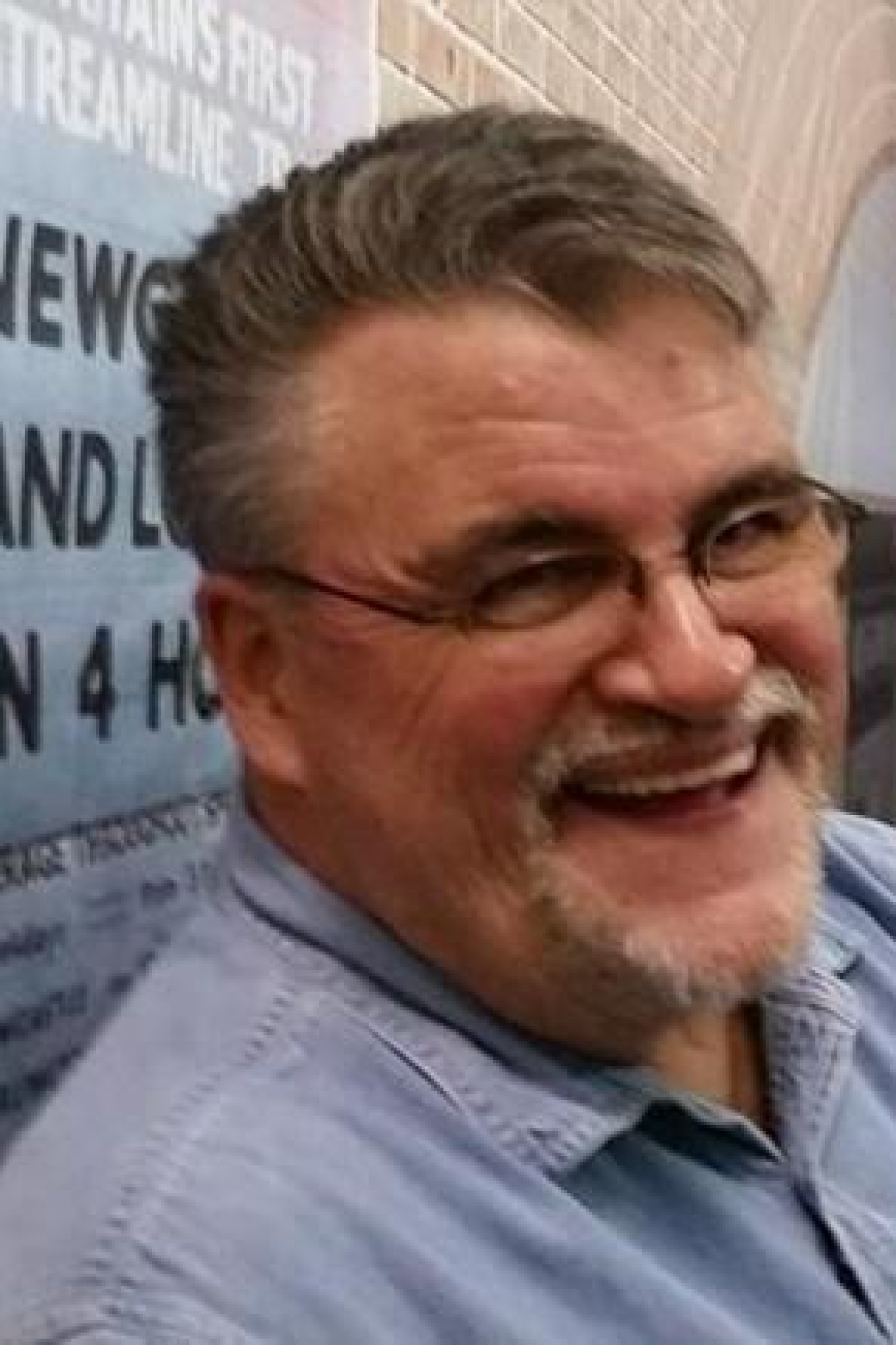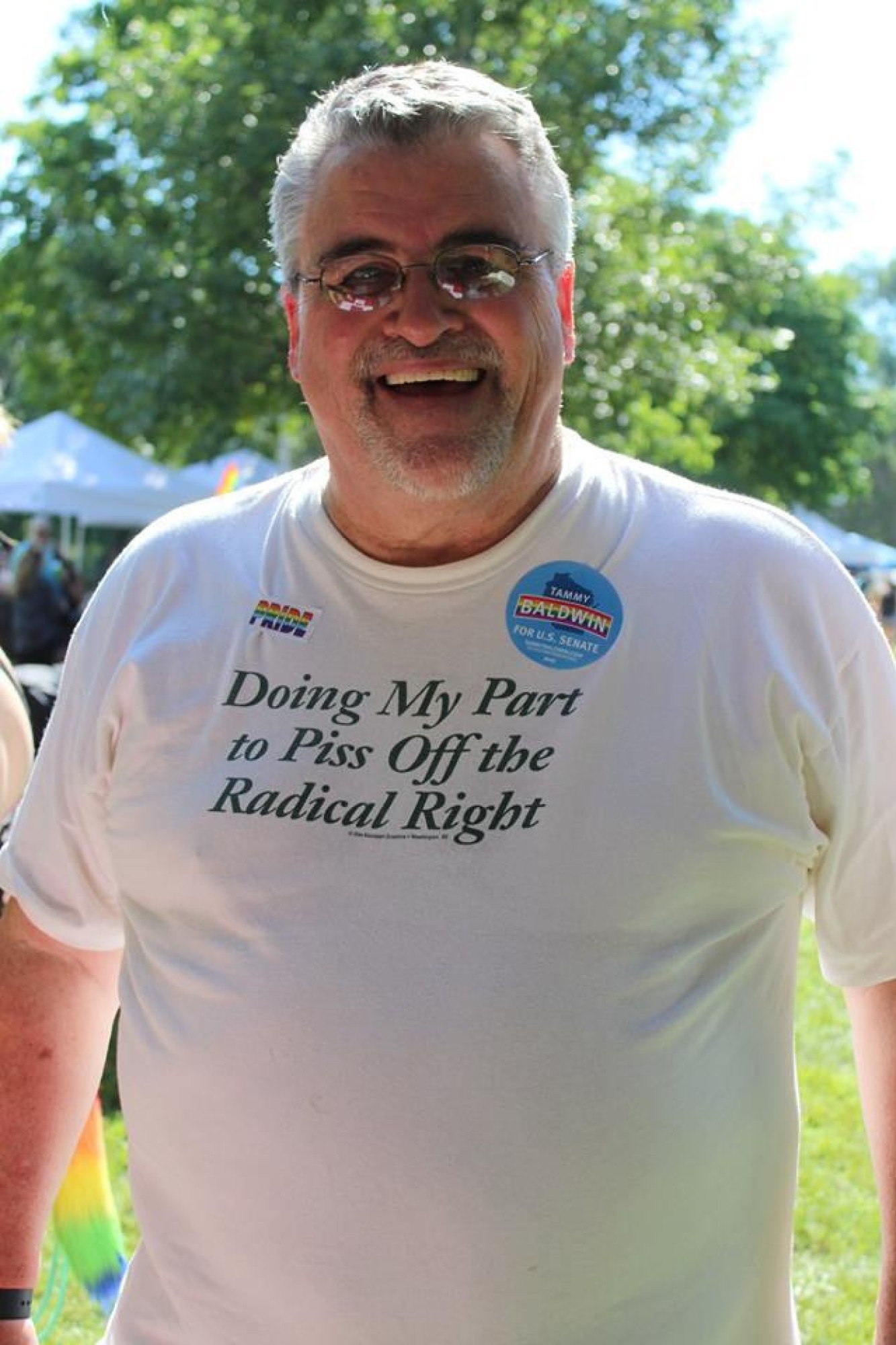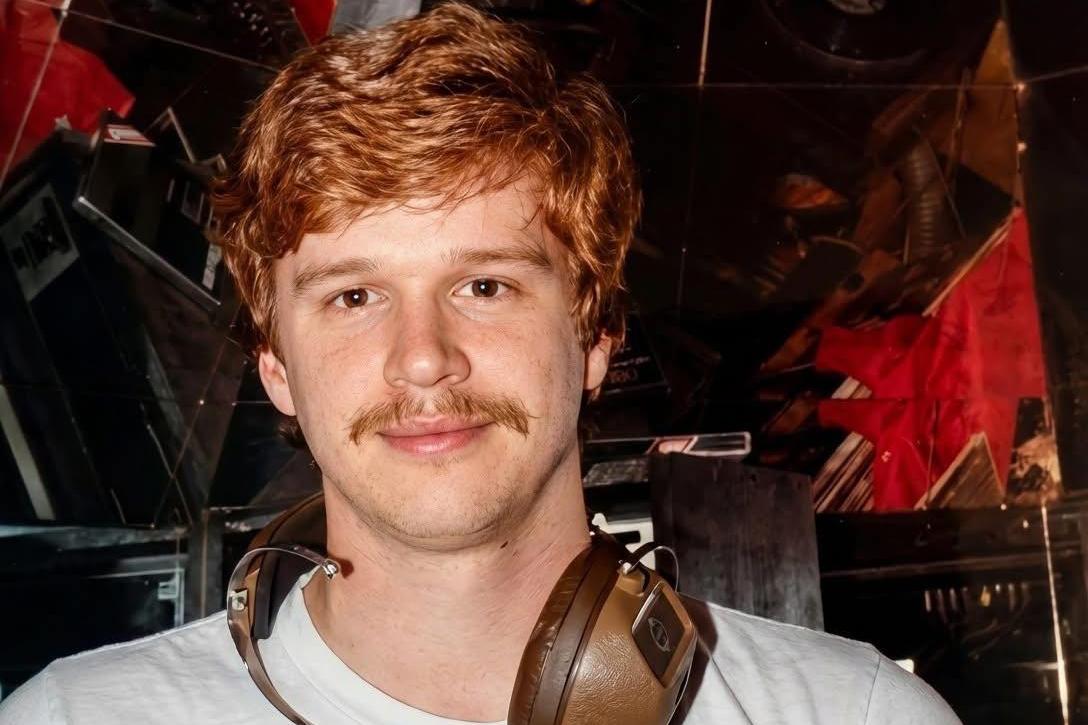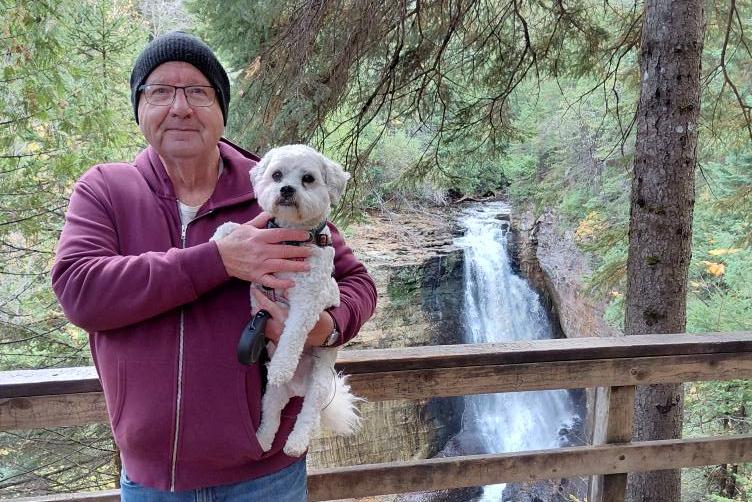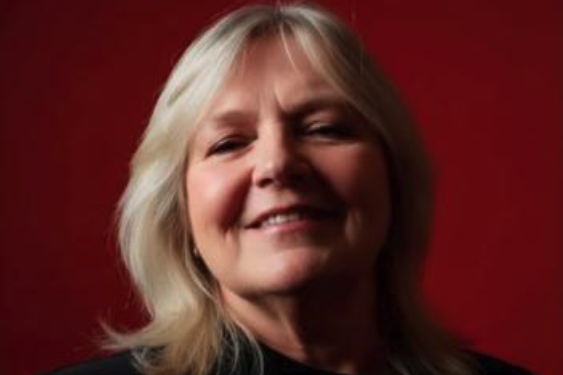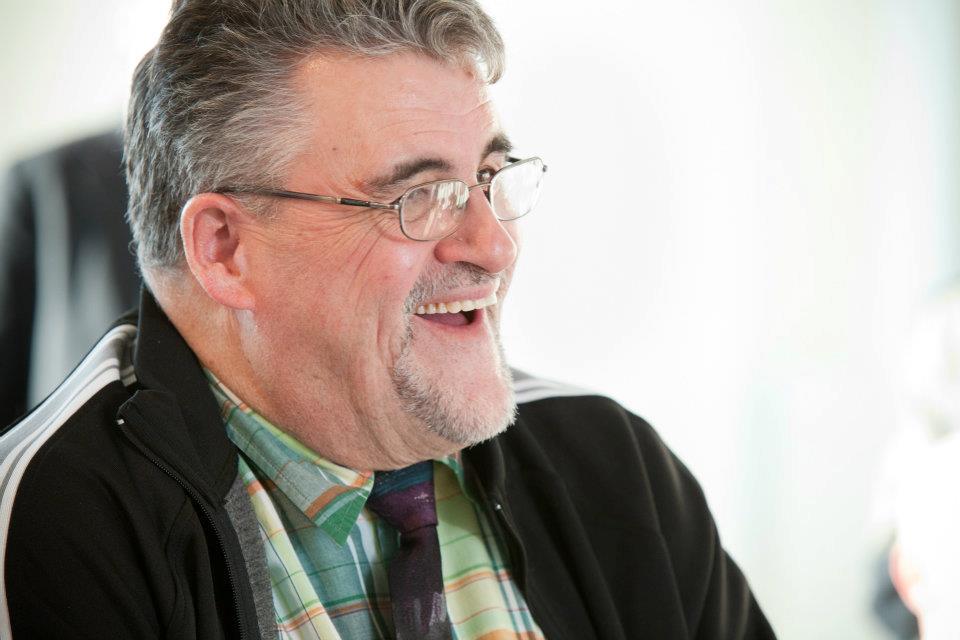
Mike Fitzpatrick: five decades of shaping Wisconsin's future

"When the sun is shining, it’s a good day to be an activist. But it's when things get ugly that we need activists most.”
From the dancefloors of Stevens Point, to the newsrooms of the state’s gay press, to the front lines of the AIDS crisis, to the board rooms of Wisconsin non-profits, Mike Fitzpatrick’s journey has been a lesson in courage. A self-described "shake and bake" activist—one who sees a need, starts the work, and then steps aside to let others lead—Mike has been one of Wisconsin’s longest-serving and most widely-read gay journalists since the mid-1980s.
Mike was born Francis Michael Fitzpatrick in late 1946. He was named after his father and grandfather, and unbelievably, all three lived in the same household.
“My grandfather got to be Pappy, my father (who was a very strong-willed man) was Frank, and I got to be Mike,” he said.
“My mother and father lived in a fifth-floor walk-up apartment in the Bronx, but I was born in Hackensack, New Jersey. She always said that I was born in the shadow of Manhattan, because her hospital room at St. Elizabeth Hospital had a window overlooking the city.”
His brother, born 11 months later, was his “Irish twin.” While his parents wanted a platoon of children, they only ended up with two.
“Back then, they were pitied, oh, the poor Fitzpatricks, they only have two kids,” said Mike. “My mother’s sisters had up to seven kids each. By the 1970s, we were the forward-thinking Fitzpatricks, because of the whole population bomb theory.”
Mike remembers growing up surrounded by cousins, as well as being the first family with a TV in his neighborhood. Every Sunday night over a dozen neighbors would gather around the 9” round screen to watch Ed Sullivan.
He also remembers a pre-Vatican II world where everything was seen as a mortal sin. He first realized, at the age of eight or nine, that he was "not the same as other kids.”
Known for his love of music—he was "always the kid with all the records who played DJ at the dances"—he decided in 1979 to buy into a downtown record store. He and his business partner bought the Flame Nightclub in 1981, where they hosted the hugely popular “New Musik Night.” This was a brilliant business model: play the hottest new songs at the club on Monday night and sell them at the store on Tuesday morning.
The “New Musik Night” later evolved into the “Monday Night Dance Club” and drew a very, very gay crowd, even though Mike himself was still "the straight guy with the Polish girlfriend" and "king of the polka scene” on local radio.
The Flame, long known as a “townie” bar throughout its long and complicated lifespan, earned newfound respect from the next generation at New Musik Night. At its peak between 1983 and 1986, the Monday Night Dance Club attracted up to 100 people every week. Today, there is still an active Facebook group celebrating the Flame, and its organizers still host Flame reunion events in Stevens Point.
The HIV/AIDS crisis was a definite turning point in Mike's life.
As early as 1981-1982, he and his friends were hearing rumors about AIDS. Soon, Mike watched the myths become facts before his very eyes, when a barback at The Flame became the first person he knew with AIDS.
“Our barback Ronnie returned from a Florida vacation with a cold he couldn't shake,” said Mike. “I urged him to get tested, knowing there was this gay pneumonia out there. Two weeks later, he said he had never felt better. This was the tragedy and irony of early HIV/AIDS: people would get sick, their immune system would kick into overdrive, they’d feel better for a short time, and then it just collapsed.”
On the Tuesday after Easter 1984, Ronnie disclosed that he’d been diagnosed with ARC (AIDS-Related Complex.) He asked if he should quit because of the widespread fear that the disease could be causally transmitted.
"I replied if that were true, we’d all be sick," said Mike. "I said that he could work as long as he was able." The opportunistic infections unfortunately shortened that time.
“This was a very different time,” said Mike. “Testing took two weeks or longer to get results. There were no medications. There were no support groups. Most doctors and caregivers didn’t want to treat people with AIDS, or even suspected of maybe having AIDS. You wouldn’t believe what some people did just to stay alive as long as they could."
"Everyone was terrified. People stayed in the closet. People stopped going out. All anyone knew about the gay community, all they associated with gay men, was that everyone was dying of AIDS."
Since north central Wisconsin was badly underserved, Mike got involved in launching a support group.
"I used to say, 'I didn't choose my causes, my causes chose me," he said.
Mike helped co-found the Central Wisconsin AIDS Support Group (CWASG) and was a charter board member of the Central Wisconsin AIDS Network (CWAN), the forerunners of what is now the Wausau office of Vivent Health. This work, which his mother referred to as his "ministry," involved testing, prevention, education, and outreach in an era of fear and ignorance.
He met his first boyfriend, Thom Ertl, at the very first HIV AIDS Conference in 1988, held in Green Lake, Wisconsin. The two were matched as roommates by the Department of Health, and Thom joked that “Francis Fitzpatrick” sounded like the name of a “90-year-old queen.”
“He came up to me and said ‘can you handle it?’ and I said, ‘handle what?’ and he said ‘can you handle me?’
Though their relationship lasted only a year and a half, due to the distance between Mike’s businesses in Stevens Point and Thom’s work in Milwaukee, the two remain friends to this day. Mike, who still considers himself "the marrying kind," fought hard for marriage equality but never actually married himself.
"I started listening to NPR in the 1980s, and I'm a sustaining member of NPR and PBS today. I’ve almost completely stopped watching network TV, including cable news left or right, because I just can’t handle the spin doctoring. Journalism is not what it used to be."
In addition to his journalism, Mike was a foundational figure in several state organizations. In the 1990s, he helped co-found the statewide civil rights organization Action Wisconsin, which later became Fair Wisconsin during the marriage amendment crisis. He is still on the organization's C4 board as secretary and serves as its unofficial historian. Fair Wisconsin began as a "kitchen table organization" that Mike helped establish at the suggestion of then-State Representative Tammy Baldwin, with Dan Ross, Charlie Squires, Laurie Guibault, and many others, periodically meeting in Madison.
"I still have Tammy Baldwin's number in my phone, even though I haven't called her in years."
In more recent years, he helped develop Rainbow over Wisconsin as one of the state’s LGBTQ foundations. Rainbow was a driving force in the creation of NEW Pride Alive and the LGBT History Project (now part of the University of Wisconsin Archives.)
Mike remains concerned about the state of LGBTQ funding, noting that after the Supreme Court ruled in favor of marriage equality, "all kinds of money just disappeared". He is a realist, constantly reminding people that rights are not guaranteed. He warns that "marriage equality is next on the docket" after the overturning of abortion rights, and he expresses frustration that "all the sunshine activists have moved on, as if the battle was forever won".
After a 2021 health crisis, Mike experienced some mobility issues, but he admits they haven’t really slowed him down. He still serves the Fair Wisconsin c4 Board of Directors, and continues to support numerous community causes and organizations.
Now retired, Mike has enduring advice for the next generation.
Find your people. "Find those people in your life. Find out who really supports you. When the going gets tough, the tough get going. Challenge yourself to find those people".
Allow yourself to live for today. "Don’t allow the insanity of the news cycle control your mood. What you’re hearing on the news is not always even true. Take a deep breath and exhale. Life will go on.”
For Mike Fitzpatrick, a man who overcame social and cultural pressures to live his truth, fought hard for a community abandoned by their loved ones, and navigated the "Wild West" days of the early internet as a leading journalist, the heart of activism is not about being a hero, but about doing the right thing for other people.
Even in retirement, Mike is still committed to that forward motion, still casting those pebbles into the water, making sure the ripples of progress never stop.
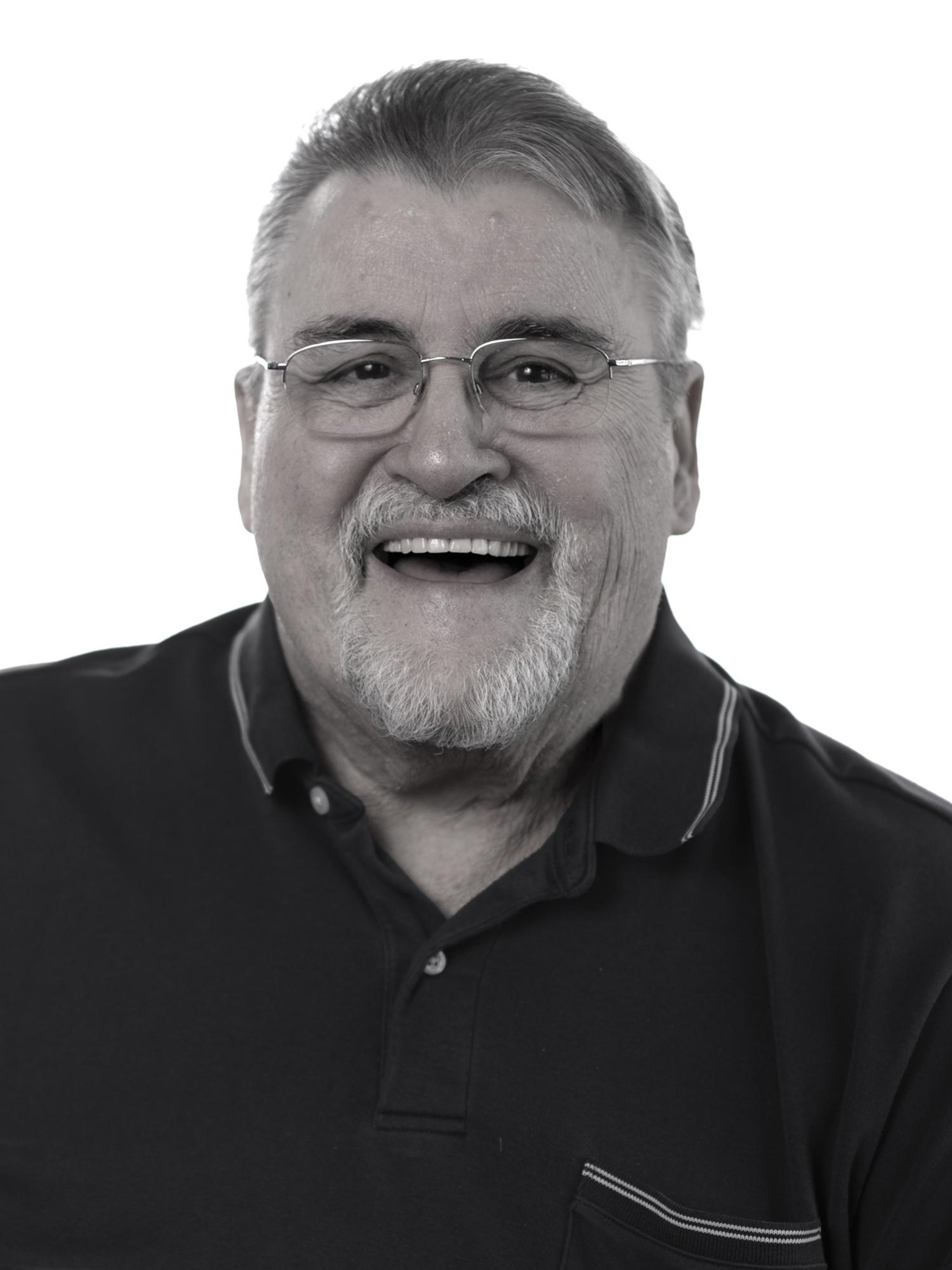 Photo by Mark Mariucci
Photo by Mark Mariucci
recent blog posts
February 14, 2026 | Michail Takach
January 17, 2026 | Garth Zimmermann
January 16, 2026 | Michail Takach
The concept for this web site was envisioned by Don Schwamb in 2003, and over the next 15 years, he was the sole researcher, programmer and primary contributor, bearing all costs for hosting the web site personally.
